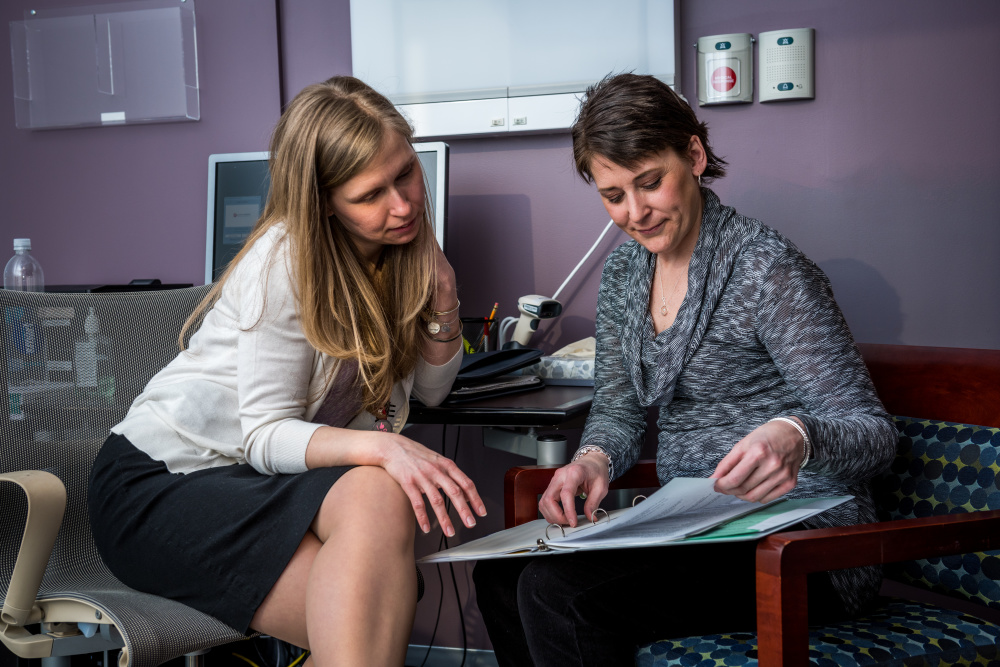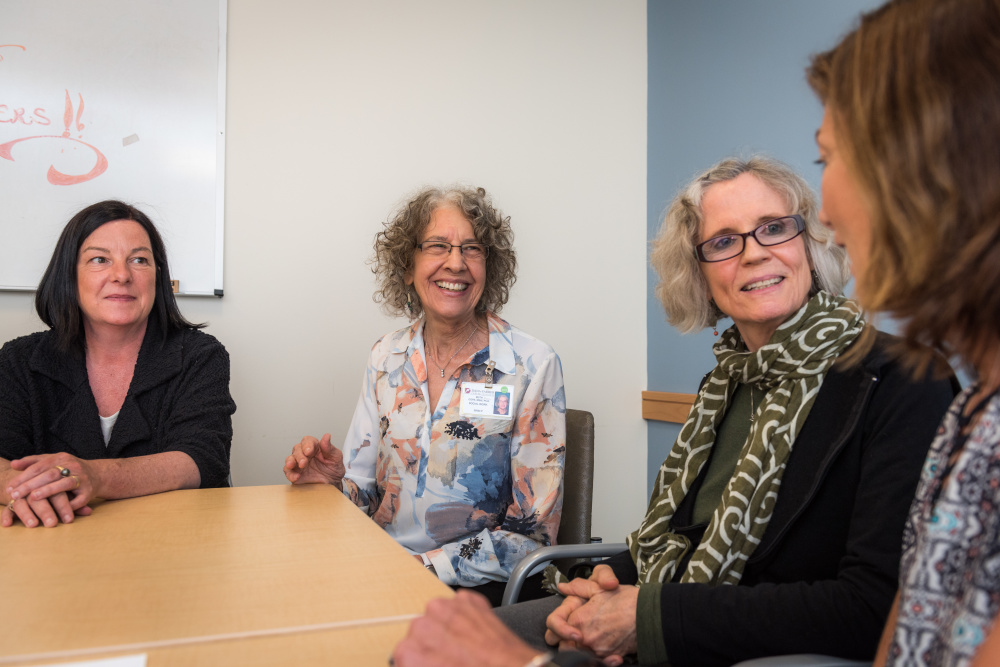 If you are taking care of a loved one with cancer, you are considered a “caregiver.” You may be responsible for navigating your loved one’s medical appointments, taking on increased responsibilities at home, and providing emotional support, all while maintaining your previous responsibilities. This can be a lot to manage, and caregivers often neglect their own well-being to focus on their loved one. But it’s very important to take care of yourself too. Here are some tips for maintaining your own physical and emotional well-being during this stressful time.
If you are taking care of a loved one with cancer, you are considered a “caregiver.” You may be responsible for navigating your loved one’s medical appointments, taking on increased responsibilities at home, and providing emotional support, all while maintaining your previous responsibilities. This can be a lot to manage, and caregivers often neglect their own well-being to focus on their loved one. But it’s very important to take care of yourself too. Here are some tips for maintaining your own physical and emotional well-being during this stressful time.
Pay attention to your needs. When you are emotionally and physically healthy, you’re likely to be a better caregiver. Identify ways to get rest, exercise, eat a balanced diet, and maintain some connection with others.
Don’t be afraid to ask for help. While it may be hard to ask for help, family members and friends are often eager to offer assistance. Accept it, and don’t shy away from delegating specific tasks, such as picking children up at school, getting groceries, or driving your loved one to an appointment.

Share. Consider joining a support group, or talking with a fellow caregiver, your family, or friends. You’ll benefit from talking about your challenges and stresses with someone who understands. You can also consult a licensed social worker, psychiatrist, counselor, or spiritual or religious advisors who can help ease your tensions.
Get organized and plan ahead. Keep appointments and contacts organized to help reduce your daily stress, and make sure important documents such as insurance forms are handy. It’s also helpful to discuss potentially challenging medical, legal, and financial issues, such as health care proxies, power of attorney forms, and concerns about the future, with your loved one early, before they may be needed. Your loved one’s care team can help you with an approach to these conversations.
Work together. You aren’t on your own: Your loved one has an entire care team, and they can be invaluable resources for both of you. Ask doctors and nurses about how to manage side effects, or talk to a nutritionist about healthy eating for you and your loved one. Never hesitate to ask questions.
Read More:
Stay close. You and your loved one are in this together, and cancer doesn’t have to overpower your relationship. Although it may look different than it did before, try to set aside “cancer-free” time for the two of you, whether that’s making dinner together, watching a movie, or just talking.
Watch for signs of exhaustion. Being focused on your loved one can make it easy to miss signs of burn out. Keep an eye out for the emotional and physical signs of caregiver stress, which may include: weight loss or gain; trouble sleeping; and feeling depressed, anxious, irritable, guilty, or inadequate. If you experience these, see your doctor or talk to someone at the cancer center to find ways to reduce stress and maintain your own health.
“As caregivers, we need to replenish our ‘tanks,’” says Ruth Cope, PhD, LICSW, facilitator of Dana-Farber’s caregiver support group. “Nourish yourselves so you can retain the energy needed to be the best you can be while carrying out all that caregiving demands.”
Dana-Farber’s division of Social Work offers regular daytime and evening support groups for caregivers of Dana-Farber patients, and certain patient support groups are also open to caregivers. Visit our online calendar for upcoming sessions and call Ruth Cope at 617-817-6280 for more information or to register. You may also consider joining the American Cancer Society’s Cancer Survivors Network, an online community by and for people with cancer and their families, or a phone caregiver support group through CancerCare.
